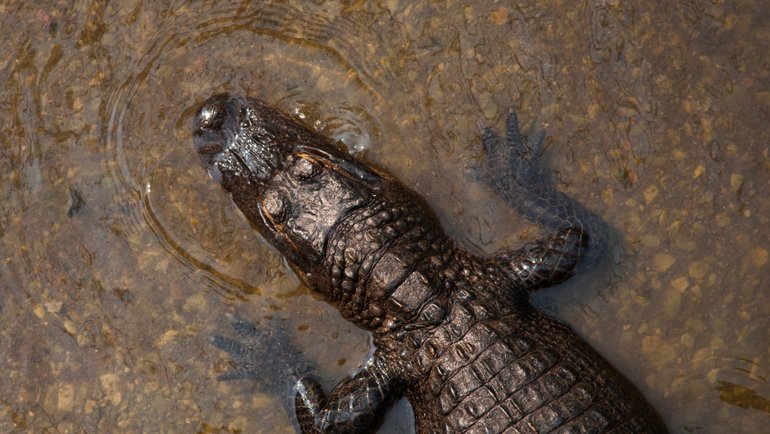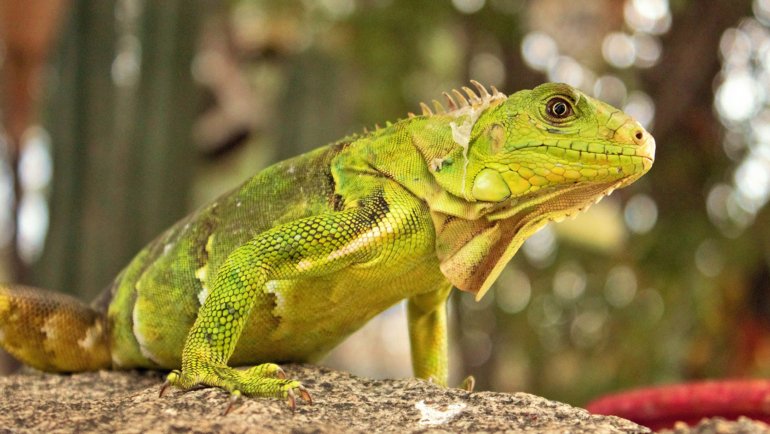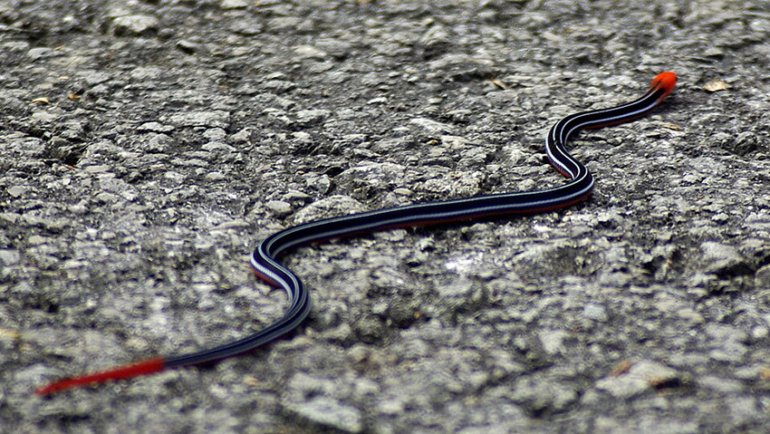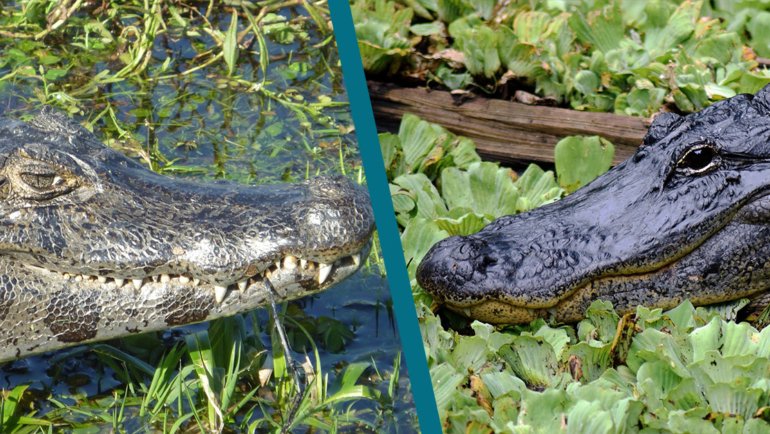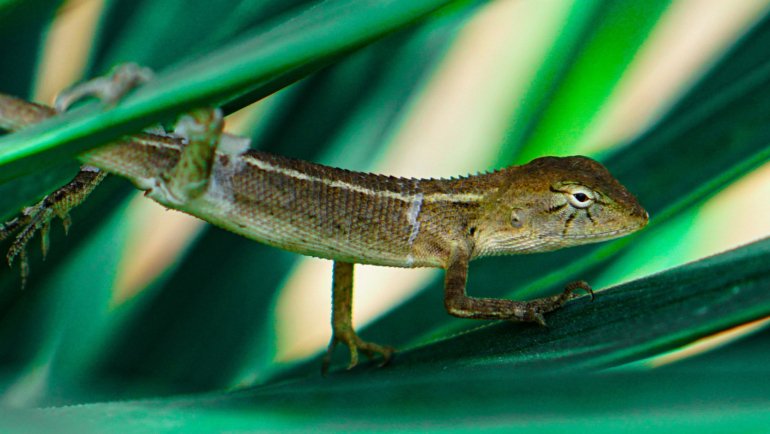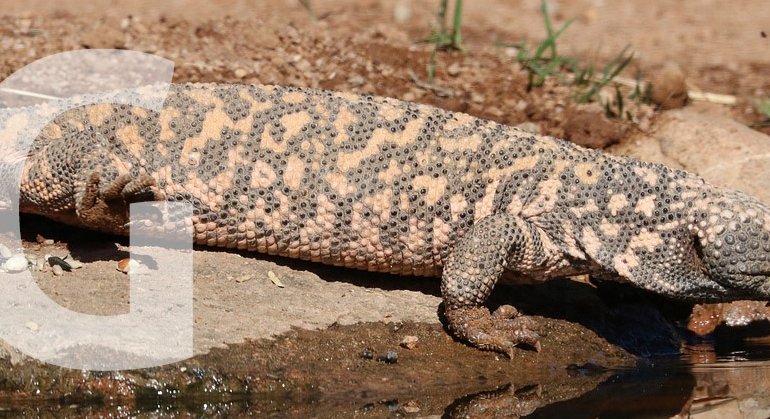Alligators are strong, huge, apex predators that control their habitats. There are two main extant species: Chinese and American alligators. Adult alligators are much stronger than humans, making us naturally consider them as dangerous.
However, many studies have suggested that alligators do not feel enthusiastic about attacking humans and, most times, are even afraid of us. But are these claims valid? Find out…
Are Alligators Aggressive?
Alligators are often wary of us and prefer not to have a situation where they show aggression. In most cases, alligators will only show aggression and possibly attack when we invade their territory. This is why you must stick to alligator safety tips to prevent an altercation.
Do Alligators Attack People?
Most attacks by alligators happen when humans encroach into their territory. There have been instances of alligators attacking people who accidentally pose a threat despite not intending to. However, it is rare for alligators to stalk humans and pounce on them as they do with prey.
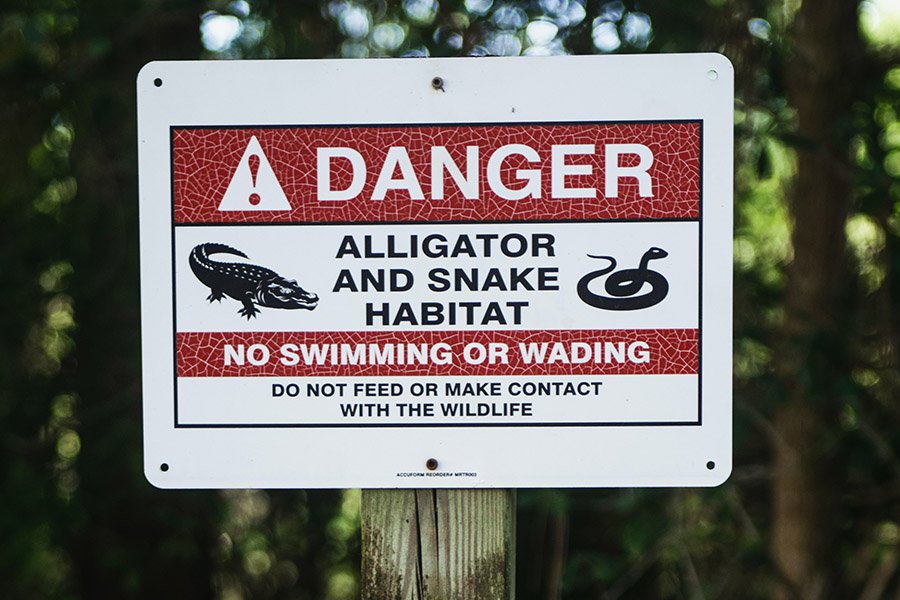
Do Alligators Eat Humans?
There has been evidence of alligators eating humans, even though these unfortunate situations only occur occasionally. However, alligators rarely eat human corpses after a fatal altercation. Only in unusual circumstances have a kill-and-eat human attack occurred in recent decades.
What to Do If You Encounter an Alligator?
The Texas Government gives straightforward tips on how to react when you encounter an alligator. You are advised to stop walking immediately and slowly back away while keeping your eyes on the animal. If there is up to two yards between you and the animal and you back away, it will lose interest in starting a chase.
How Do Alligators Attack?
Alligators are fierce attackers and often cause heavy damage to their prey with their jaws. Their primary form of attack is their teeth. They clamp down on flesh with their powerful jaws and immediately twist and roll to aid tearing. They also use their tail to deal huge blows to aggressors and can swing their heads swiftly to launch an attack.
Their three primary forms of attacks can knock out most humans, which is why it is highly advised to avoid alligator attacks instead of getting in a situation where you have to stop them.

How to Escape an Alligator?
If an alligator is lunging at you in a river, the best form of attack is to continue backing away while keeping your eyes on it. Alligators are extremely fast in the water, making them extra dangerous. So you need to back away as fast as you can.
If the attack is on the land, you have a better chance of escaping as you can grab rocks to deter them. Also, try to scream as loud as possible to attract help nearby if the alligator keeps closing the distance.
How to Survive an Alligator Attack?
Alligator attacks inside water are much more dangerous than on land. If an alligator attacks you in a river, you must do all you can to fight for your life.
CNNTravel advises hitting sensitive areas of the alligators, like eyes, snout, and jaws, while shouting as loud as you can. You must do all you can to drag yourself towards the river bank, as that is the best route to escape.
If you are on land, the best you can do is to keep fighting. Use stones and any hard objects you can grab on the alligator’s snout, head and eyes.
If the alligator already has your arm or legs in its jaw, it will try to roll, and you must be ready to roll in the same direction with it. Alligators roll and twist to aid flesh tearing. You could suffer heavy injuries and blood loss if you do not roll with a twisting alligator. Finally, do not forget to scream for help.
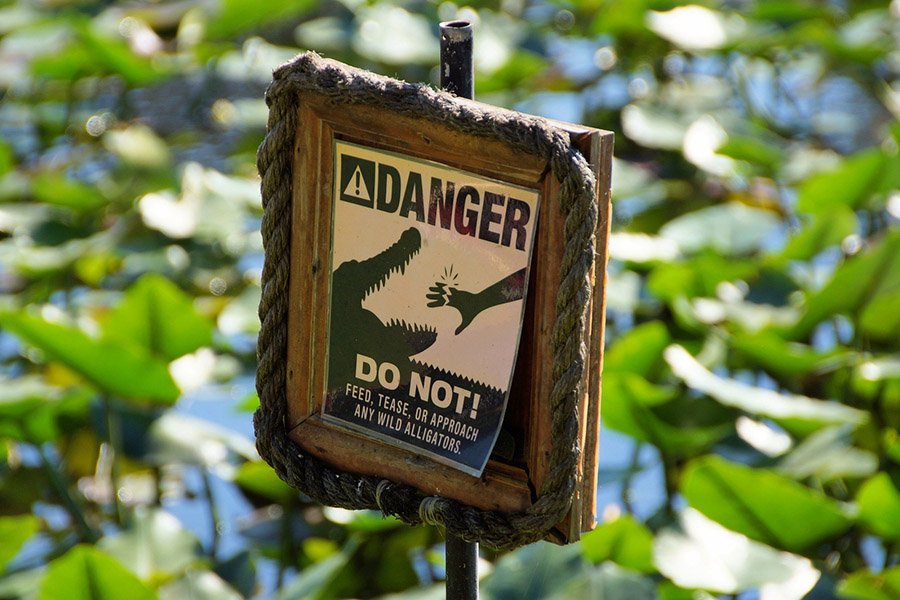
Frequently Asked Questions
How to Scare an Alligator Away?
If an alligator is setting up to lunge at you, scream as loud as you can while backing away slowly. This should typically deter the alligator from actively chasing you. If it still looks intent on chasing you, then you have to take to your heels. You are probably encroaching on its territory or too close to its young ones. Run as fast as you can to an open space.
An alligator can put in a speed of 9 to 35 miles per hour over a few feet on land. So the chance of it catching you is a bit above average. Fortunately, the chance it will lose interest in you when you take to your heels is higher.
If you are being tailed in water by the alligator, do not try to stand your ground. You are on its turf and will only provoke it by making menacing sounds. Just head for land as fast as you can while keeping your eyes on it. Scream for help while backing away.
How to Fight an Alligator?
While an alligator is very powerful, it has some sensitive areas you can focus on if it attacks you. Hit its snout and eyes as hard as you can. Don’t attempt to release your body from its jaw. They are just too powerful and won’t bulge if the alligator does not want to let go. Just keep hammering its snout and eyes; it will likely feel irritated and let go.
While fighting, scream as much as you can to get help.
What to do if an Alligator is Chasing you?
An alligator may threaten you, so you back off from its territory. But If it starts to chase you, keep running away. It likely wants you to leave its territory. Don’t stop running; it will let you be in no time.
Do not run in Zig Zags, as that will only give the reptile the advantage. Zig Zag running is a myth when being pursued by animals. It only slows you down and gives the alligator an advantage.
What To Do If You See An Alligator While Swimming?
If you see an alligator during a swim, It is likely it has already spotted you, and you need to leave the water immediately. Even if you are sure that the alligator is oblivious to your presence, leave the water because you are at serious risk of being attacked once spotted.
Should You Attack A Gator’s Eyes?
Alligators’ eyes are one of the few sensitive parts of their body. If you are attacked and can reach for their eyes, do so and hit with menace. Hit as much as you can, and the alligator will find it a waste of time to keep fighting. Run away from the reptile if you can escape and try to get help.
How Fast Can An Alligator Move On Land?
Alligators can cover 9 to 35 miles per hour over a few feet at full burst. They typically tire quickly and won’t get past 20 to 30 feet before losing steam. The best way to stay safe from an alligator is to keep your distance because it will likely catch you if you are too close and decide to give chase.
How Fast Can An Alligator Run Out Of Water?
Alligators can swim at a top speed of 20 miles per hour and maintain this rate for longer than they can on land. Alligators are much faster on water; they are the most dangerous, so watch out when swimming in a lake known to have alligators.
How Hard Can An Alligator Bite?
Alligators’ bites can crush bones and average a bite force of up to 2125 PSI. They possess one of the strongest bite forces, making them one of the major animals humans should never mess with.
Where & How to See Alligators in Your State?
- Alabama
- Alaska
- Arizona
- Arkansas
- California
- Colorado
- Connecticut
- Delaware
- Florida
- Georgia
- Hawaii
- Idaho
- Illinois
- Indiana
- Iowa
- Kansas
- Kentucky
- Louisiana
- Maine
- Maryland
- Massachusetts
- Michigan
- Minnesota
- Mississippi
- Missouri
- Montana
- Nebraska
- Nevada
- New Hampshire
- New Jersey
- New Mexico
- New York
- North Carolina
- North Dakota
- Ohio
- Oklahoma
- Oregon
- Pennsylvania
- Rhode Island
- South Carolina
- South Dakota
- Tennessee
- Texas
- Utah
- Vermont
- Virginia
- Washington
- West Virginia
- Wisconsin
- Wyoming
Other Articles to Learn More About Alligators
- American Alligator: Characteristics, Diet, Facts & More [Fact Sheet]
- Alligators – 30 Amazing Facts, Info & Pictures
- What Do Alligators Eat? All About Their Diet
- What Eats An Alligator? Top 12 Alligator Predators
- Are Alligators Friendly to Themselves or ever to Humans?
- Can Alligators Regrow Limbs? Unveiling the Truth About Reptilian Regeneration
- Do Alligators Eat Manatees? How Likely is it to Happen?
- When Do Alligators Come Out of The Water?

